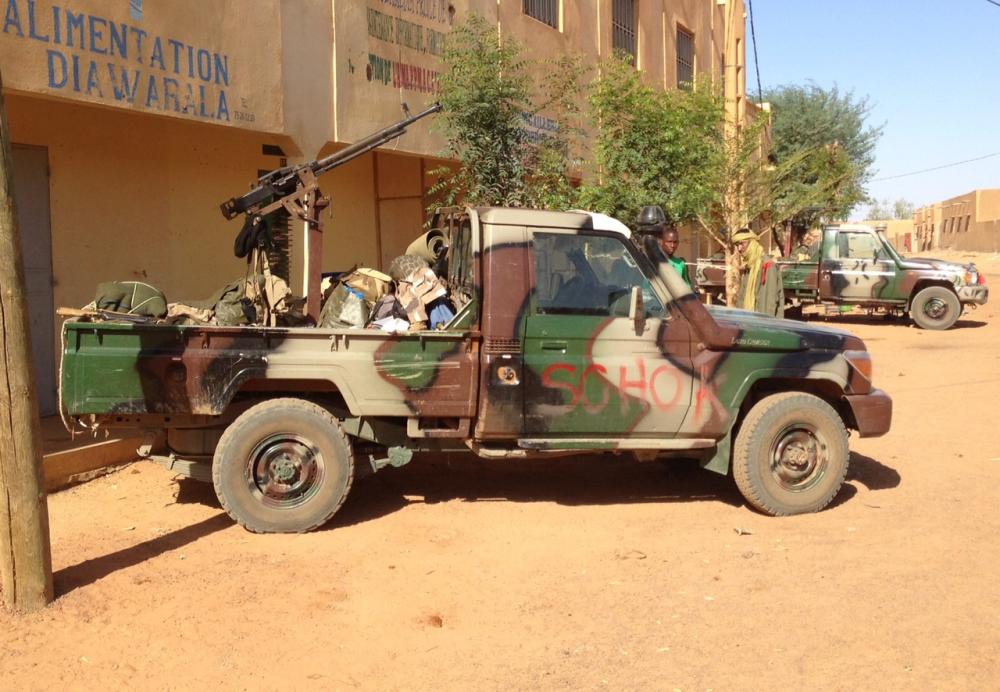
Twenty-seven candidates are running in the first round of Mali's presidential elections, set for this Sunday (July 28, 2013), as the country struggles to regroup following an Islamist insurgency that took control of northern Mali and a coup led by elements of the Malian army. According to The Irish Times, top contenders include former Finance Minister Soumaila Cisse and former Prime Minister Ibrahim Boubacar Keita. The youngest candidate, Niankoro Yeah Samaké, has also been receiving attention.
International observers and civil society leaders within Mali view these elections—and their aftermath—as crucial to peace-building within Mali. Almost all candidates are promising to fight corruption, to create jobs and to work towards national reconciliation.
Mali ranks 125 out of 162 countries on Vision of Humanity's Global Peace Index and is in the top half of the Failed States Index, according to the Fund for Peace.
At the same time, al Qaeda in the Islamic Maghreb (AQIM) continues to wield control over a remote and unforgiving part of northern Mali. AQIM set up training camps and stockpiled weapons and ammunition, as reported by Pulitzer Center grantee, Yochi Dreazen. The French kicked AQIM out of major cities and put the region under nominal central-government control but that government is weak and under-equipped.
International representatives attending a fundraising conference for Mali in May 2013 pledged $4.22 billion, "ensuring that a new administration has the money to restore basic services across the country, such as electricity, water and schooling," according to the Wall Street Journal. The Obama administration said it would "ask Congress to approve $180 million in bilateral aid plus an additional $32 million in humanitarian assistance." This aid would begin after the elections; European governments have tied dissemination of the aid to Mali "continuing the road to democracy" and reaching out to minorities.
Earlier this month the Stimson Center held a discussion titled "What Mali Can Teach Us," featuring Melanie Cohen-Greenberg, President & CEO, Alliance for Peacebuilding, Vivian Lowery Derryck, President & CEO of the Bridges Institute, Retired Col. Christopher Holshek, Senior Fellow, Alliance for Peace-building, and Ambassador of Mali Al-Maamoun Baba Lamine Keita. Cohen-Greenberg and Derryck are chairs of Mali Watch, an organization focused on peacebuilding and rebuilding Mali.
The discussion focused on civilian-military relationships and lessons we can learn from Mali as the country works its way toward democracy.
Derryck emphasized the relationship between civilians and the military as the most crucial step towards peacebuilding. Before the event, Derryck emailed Malians to ask: "Should the military have staged a coup?" One response highlighted the distrust between civilians and the military: "No. In general, people do not trust the government's or military's capabilities . . . People live in fear."
Cohen-Greenberg agreed with Derryck but took it one step further, claiming that both the U.S. and Malian militaries need to think about strategy beyond security. She said the Malian army needs to start anti-corruption training, further integrate women into the army and learn more about the constitution.
"But really what's at the DNA of peacebuilding is talk," Cohen-Greenberg said. "How do we encourage these kinds of hard conversations?" In a separate interview, she elaborated by saying, "There are high levels of fear and distrust in Mali and social cohesion has really broken down."
During an interview after the event, Cohen-Greenberg said in order to have these hard conversations, community groups in the north and south as well as government officials need to think about what a united country would look like. Cohen-Greenberg emphasized a "common future" from grassroots groups all the way up to the highest level of government.
"The key is to learn from past mistakes and apply the lessons," said Ambassador Keita. "We need a military model that emphasizes peacebuilding as much as security."






